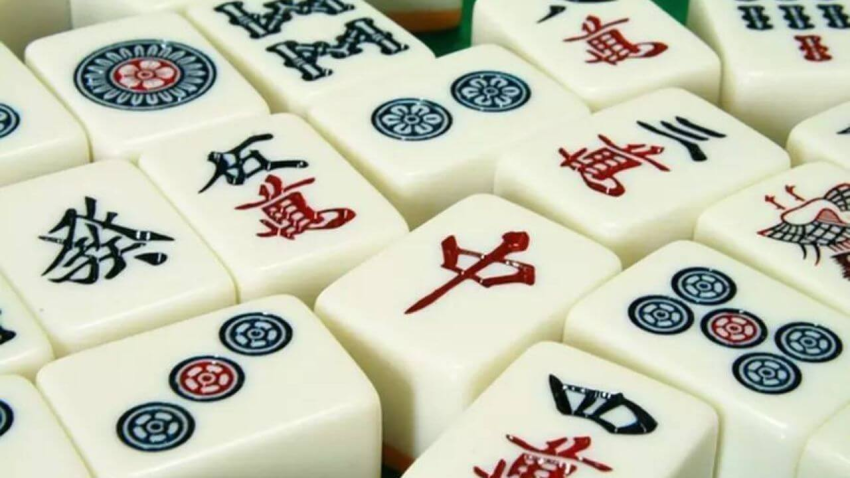The cultural significance of Mahjong extends far beyond its gameplay, making it a poignant symbol of community and tradition. Rooted in the rich tapestry of Mahjong history, this ancient game first emerged in China and has since transformed into a global phenomenon, even finding a place in the realm of Mahjong online gaming. As players engage in strategic board games, they not only compete but also partake in a communal experience that transcends borders. The intricate tiles and gameplay reflect Mahjong’s cultural roots, uniting families and friends through shared moments. This introduction invites you to delve deeper into the game’s legacy, exploring its evolution in modern society and its enduring impact on communal gaming practices.
Often referred to as a game of tiles or a strategic leisure activity, Mahjong represents a blend of skill, luck, and social interaction. Its origins trace back to ancient China, where it served as more than mere entertainment; it fostered community ties and family gatherings. As an iconic board game, its relevance continues to resonate today, especially as it transitions into the digital age through Mahjong online platforms. This exploration sheds light on the communal gaming aspects that enrich the player experience and highlights how Mahjong’s cultural significance has adapted while retaining its core values. In this journey, you’ll uncover how a simple game has become a powerful cultural touchstone for millions.
The Cultural Significance of Mahjong in Digital Gaming
Mahjong represents an enduring connection to cultural heritage that transcends its status as a mere game. As it evolves in digital formats, the cultural significance of Mahjong becomes more pronounced. Online platforms enable players from different backgrounds and cultures to engage with Mahjong’s rich history, fostering a sense of community that extends beyond geographical boundaries. The intricate designs and traditional rules reflect centuries of cultural lineage, emphasizing that even in a modern context, the essence of Mahjong remains rooted in social engagement and communal ties.
Furthermore, the digital transformation of Mahjong allows for significant cultural exchange. Players can learn about the game’s history, regional variants, and strategic nuances through online forums and multiplayer settings. This accessibility not only preserves the cultural roots of Mahjong but also adapts them to a contemporary audience. As players navigate through different strategies and gameplay styles, they participate in a collective experience, reinforcing the notion that Mahjong is a vibrant part of the global gaming culture.
The Strategic Depth of Mahjong and Its Role in Community Bonding
One of the unique aspects of Mahjong is its strategic complexity, which serves as a catalyst for community bonding. The gameplay involves a blend of skill, strategy, and social interaction that draws players together. Whether played in person or online, Mahjong creates an environment that encourages discussion, strategy sharing, and friendly competition. This interplay enhances the communal experience, making each game a shared journey of learning and adaptation as players navigate through shifting tile combinations year after year.
Moreover, communal gaming through Mahjong nurtures relationships and builds friendships. Traditionally, families and friends would gather around the table, and today’s online format continues this legacy by connecting people across the globe. As players engage in Mahjong’s interactive challenges, they not only develop strategic skills but also forge connections that transcend cultural divides. This illustrates how strategic board games like Mahjong are not just pastimes but pivotal in fostering interpersonal relationships and community spirit in our increasingly digital world.
Frequently Asked Questions
What is the cultural significance of Mahjong in modern gaming?
The cultural significance of Mahjong in modern gaming is profound, as it embodies community, familial bonding, and social interaction. Originating in China, Mahjong has evolved from traditional gameplay to digital formats, connecting players globally. It preserves its rich heritage, allowing players to engage with vital cultural roots while fostering strategic gameplay and camaraderie, whether in-person or online.
How has Mahjong’s cultural roots influenced its transformation into online gaming?
Mahjong’s cultural roots have significantly influenced its transition into online gaming by preserving traditional rules and aesthetics that reflect its historical background. As it moves into digital platforms, Mahjong maintains its strategic depth and communal aspects, promoting cultural exchange among diverse player bases worldwide. This transformation allows the game to retain its significance while adapting to modern gaming trends, enriching the player experience with its cultural narratives.
| Key Point | Details |
|---|---|
| Historical Context of Mahjong | Origins in China, symbolizes community and social interaction, traditionally played with family. |
| Digital Transformation of Mahjong | Transitioned to online platforms, fostering a global community while retaining cultural significance. |
| Strategic Depth and Social Interaction | Intricate blend of strategy and luck, cultivates camaraderie through gameplay whether online or offline. |
| Cultural Significance in the Modern Era | Cultural resilience in the face of technological advancement, promoting community and shared heritage. |
Summary
The cultural significance of Mahjong in modern gaming is a profound testament to its enduring legacy. As we explore the evolution of this ancient game, we recognize it as more than just a pastime; it is a crucial cultural artifact that fosters community and preserves heritage across generations. Mahjong’s journey from local gatherings to the digital world exemplifies the balance between tradition and innovation, inviting players from diverse backgrounds to share in its rich tapestry of social interaction and strategic gameplay. In this narrative of adaptation and resilience, Mahjong continues to thrive, proving that even in a fast-paced digital age, the foundational values of connection, identity, and cultural expression remain as relevant as ever.
